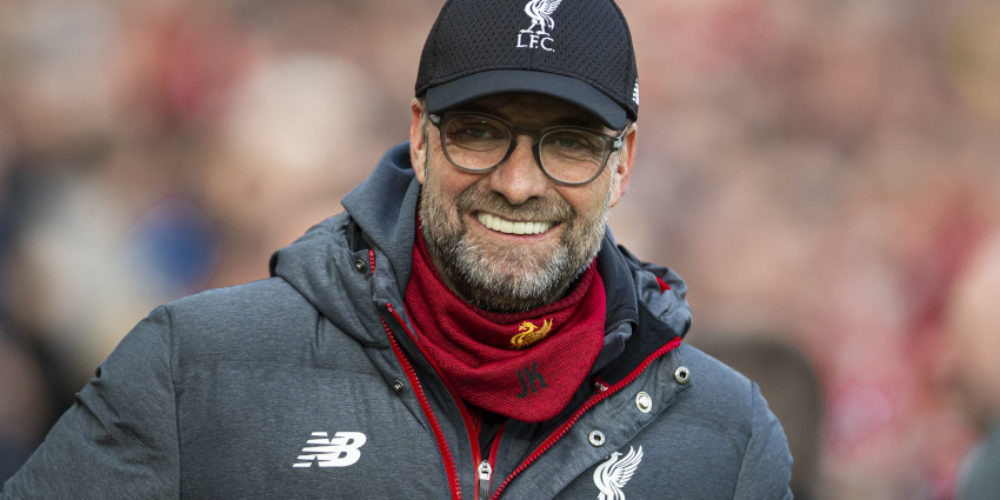Meet a leader truly focused on others

By December 2019 I was pretty sure I would be writing this particular column in May 2020. Then a certain virus arrived…
Jürgen Klopp just took Liverpool Football Club to its first English Premier League (EPL) title for 30 years. Anyone interested in leadership should take a close look at the unique qualities this particular leader is demonstrating.
Back in 2013 I wrote here about Sir Alex Ferguson, legendary manager of another soccer club, Manchester United. Ferguson was retiring after a truly remarkable career, and I wanted to record the essence of his achievement.
The core of Ferguson’s accomplishments was to create a winning culture. The Manchester United teams of that era had a never-say-die mentality that was breathtaking to observe. I wrote then: “No United team in my memory (under Ferguson) has arrived on a pitch not believing it can win the game.”
My conclusion was: “In essence, the only sustainable competitive advantage is not in your star employees, your winning products, your current locations. It is in your most intangible asset: your CULTURE. Culture creates the mentality and behaviour you need to win and keep winning; to get up from defeat without losing hope; to believe in something bigger than individual gain.”
And here’s the irony. A few years later, a chain of mismatched successors to Ferguson has withered that culture; while in nearby Liverpool, United’s bitter rivals for English ascendancy, a cultural renaissance is in full flower under Klopp.
Klopp gets it. When he arrived at Liverpool four years ago, it was a club in disarray, living off past glories. Klopp was a man in demand, and considered offers from many of the world’s top clubs. Yet he came to Liverpool, for something intangible he called “soul.” He wanted to rebuild from scratch, patiently, in service of a city and institution that had football at its heart.
The bounceback was rapid: Liverpool reached first the UEFA Europa League Final and then the big one, the UEFA Champions League final, in rapid succession. But both ended in defeats. And yet greatness lay in wait.
From day one, Klopp had worked on culture. He is a big man with big smiles, a big booming laugh and big hugs for fans and players and rivals alike. He would be easy to dismiss as a feel-good merchant, but behind the smiles is a precision brain. He has been creating what he calls “Mentality Monsters” – players who refuse to give up. Those players went straight back to the Champions League final the year after the historic defeat – and won it. This year they have finally landed the one that eluded a whole generation, the EPL trophy – so emphatically that it was pretty much in the bag by Christmas 2019, which is when I knew I would be writing this article.
Klopp’s tight-knit, team-first culture is combined with strict strategy: a super-quick, relentless style of play that presses opposition teams into helpless submission. This interlocking combination of culture and strategy is very unusual – and very effective. Behaviour drives performance, which in turn reinforces behaviour.
But the earthy Klopp knows nothing of this business-school jargon. Players and colleagues describe him as the real deal: he is what you see, a man with genuine warmth and affection, who inspires others to greater heights than they thought themselves capable of. He has improved every player in the squad, but has always made them play for the whole, not for themselves. In interviews he shies away from talking about his own achievements, always highlighting the impact of his colleagues.
This is the heart of leadership: creating the conditions in which others can perform and deliver. The best leaders are enablers, facilitators, coaches. They are always more we than me – but genuinely so, not as a pose or posture. And they are very, very rare.
For most leaders, it’s a very different deal. Look at me. Praise me. Reward me. Adore me. Depend on me. Remember me. Miss me.
It should be no surprise that the more common brand of leadership only produces short-lived successes, gains that crumble quickly, accomplishments that are illusions crafted for the cameras.
When Liverpool finally landed the EPL trophy last week, Klopp began crying during his first TV interview. Why? Because of his genuine delight for the club’s fans and his own iconic predecessors from yesteryear. Again, his focus was not on himself, his image or his accomplishment. It was in his connection with others, with a bigger deal. Perhaps that’s why he came to this club above all others. Its anthem is: “You’ll Never Walk Alone.”
(Sunday Nation, 5 July 2020)

Buy Sunny Bindra's new book
The X in CX
here »
Popular Posts
- NY’s wake-up call to the old guardNovember 9, 2025
- Save your strength for repairsNovember 2, 2025
- How to listen, really listenNovember 16, 2025
- Empathy is the missing code in CXOctober 26, 2025
- Is AI hiring your company into oblivion?November 23, 2025















